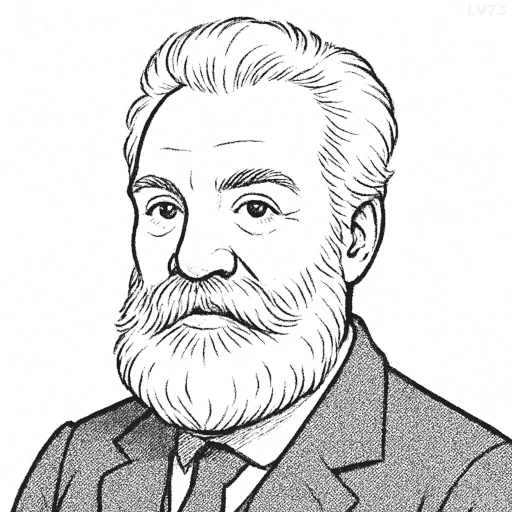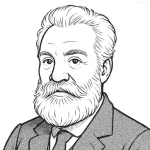“It is a neck-and-neck race between Mr. Gray and myself who shall complete our apparatus first. He has the advantage over me in being a practical electrician – but I have reason to believe that I am better acquainted with the phenomena of sound than he is – so that I have an advantage there.”

- March 3, 1847 – August 2, 1922
- Born in Scotland
- Inventor, scientist, engineer, educator
table of contents
Quote
“It is a neck-and-neck race between Mr. Gray and myself who shall complete our apparatus first. He has the advantage over me in being a practical electrician – but I have reason to believe that I am better acquainted with the phenomena of sound than he is – so that I have an advantage there.”
Explanation
In this quote, Alexander Graham Bell reflects on the competition he faced with Elisha Gray, another inventor working on the development of the telephone. Bell acknowledges that Gray, as a practical electrician, had certain advantages in terms of technical expertise and experience. However, Bell believed that his deeper understanding of sound and acoustics gave him a distinct edge in solving the challenges related to transmitting vocal sounds electronically. The quote captures the rivalry between the two inventors, who were both striving to be the first to develop a successful telephone.
Historically, this moment is significant because it highlights the race to invent the telephone in the mid-1870s, when both Bell and Gray were independently working on similar technologies. Bell’s expertise in acoustics (the science of sound) played a critical role in his eventual success, as he was able to apply his knowledge of how sound travels to develop a device capable of electrically transmitting speech. Bell’s understanding of sound was crucial to overcoming the technical challenges that Gray, with his focus on electrical engineering, may not have fully addressed.
This rivalry between Bell and Gray culminated in a famous legal battle over the patent for the telephone, with Bell ultimately being awarded the patent in 1876. In modern times, this competition serves as a reminder of the importance of interdisciplinary knowledge in innovation. While engineering and practical skills are vital, Bell’s insight into sound and acoustics illustrates how theoretical knowledge can also provide an advantage in technological breakthroughs. Today, this balance between theory and practice continues to shape advances in fields like communication technology, electronics, and audio engineering.
Would you like to share your impressions or related stories about this quote in the comments section?
